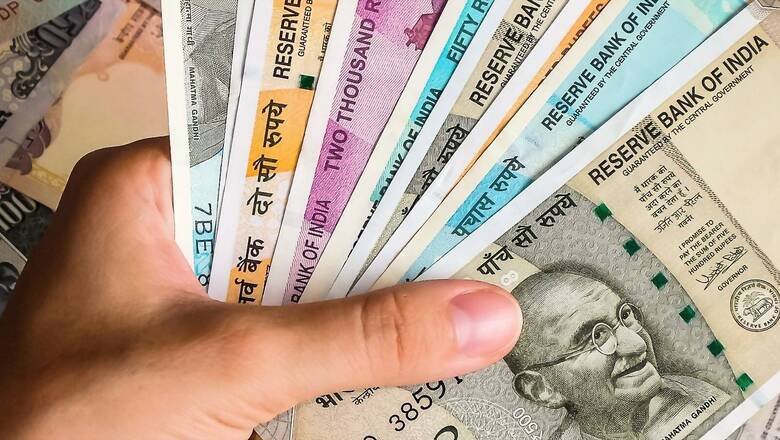
views
Even as the Reserve Bank of India (RBI) has been raising the repo rate since May this year to control inflation, banks are also raising their interest rates on loans and deposits. On Friday also, the RBI raised the repo rate by 50 bps to 5.9 per cent. Among the lenders that have raised the benchmark lending interest rates are HDFC, Bank of Baroda, PNB, Union Bank, RBL, IndusInd Bank and RBL Bank. Here’re the details:
Hours after the RBI raised the repo rate on Friday, mortgage lender HDFC hiked its lending rate by 50 basis points. “HDFC increases its Retail Prime Lending Rate (RPLR) on Housing loans, on which its Adjustable Rate Home Loans (ARHL) are benchmarked, by 50 basis points, with effect from October 1, 2022,” it said. This is the seventh rate increase undertaken by HDFC in the last five months.
Following HDFC, state-owned Bank of Baroda also hiked its repo-linked lending rate by 50 bps to 8.45 per cent.
Before HDFC and Bank of Baroda, Punjab National Bank (PNB) has also revised its marginal cost of funds-based lending rate (MCLR) with effect from October 1. Its one-month MCLR now stands at 7.15 per cent. The bank’s base rate has also been revised from 8.75 per cent to 8.80 per cent. The interest rate under the repo-linked lending rate (RLLR) will change to 8.40 per cent from 7.90 per cent. The rates are further expected to rise after the RBI’s 50 bps hike on Friday.
Private sector lenders RBL Bank and IndusInd Bank have also hiked their MCLR. IndusInd Bank has increased its MCLR by 5-10 basis points across tenures. Its overnight to three-year MCLR now ranges between 8.30 per cent and 9.80 per cent.
RBL Bank hiked its lending rate by 20 bps across tenors. Its overnight to one-year MCLR now ranges between 8.25 per cent and 9.45 per cent.
Earlier this month, mortgage financiers LIC Housing Finance and Indiabulls Housing Finance also raised their lending rates by 15 bps and 10 bps, respectively.
What Does It Mean For Borrowers, Lenders?
The move would increase equated-monthly instalments (EMIs) for borrowers on their loans, thus making the credit costlier. It will also allow the lenders to pass on their high borrowing costs to borrowers.
The RBI on Friday increased the repo rate by 50 basis points to 5.9 per cent, the fourth time increase in a row. In the past four subsequent monetary policy reviews since May this year, the RBI’s rate-setting panel has raised 190 basis points in total. The repo rate is the interest rate at which the RBI lends to the commercial bank.
Interest Rate Hikes On Deposits
Apart from the lending rates, banks are also raising their interest rate offerings on deposits. RBL Bank has revised the interest rates on fixed deposits under Rs 2 crore, effective October 1. It will now provide a maximum interest rate of 7.25 per cent for the general public and 7.75 per cent for senior citizens on deposits maturing in 725 days.
ICICI Bank has also revised upwards its interest rates by up to 25 basis points (bps) on fixed deposits below Rs 2 crore. Its latest interest rates will now be in the range of 3 per cent-6.10 per cent for tenure depending upon the tenure, between 7 days and 10 years.
Read all the Latest Business News and Breaking News here




















Comments
0 comment